The Haunted
Manor
Stanisław Moniuszko
-
Act I
40 min.
-
Intermission
ca. 20 min.
-
Act II
40 min.
-
Intermission
ca. 20 min.
-
Act III and IV
1 h 10 min.
Duration: ca. 3 h 15 min.
- See photo: fot. / photo: Krzysztof Bieliński
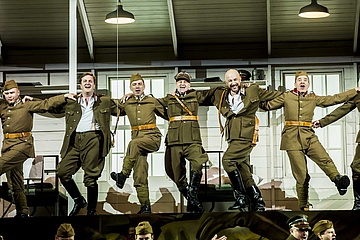
- See photo: fot. / photo: Krzysztof Bieliński
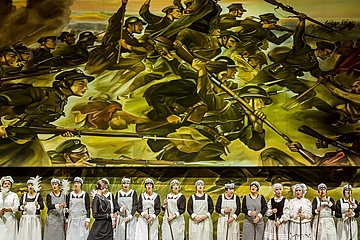
- See photo: fot. / photo: Krzysztof Bieliński
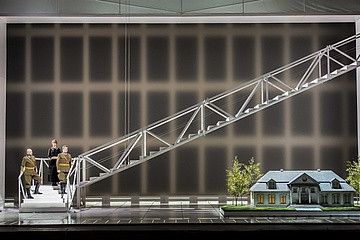
- See photo: fot. / photo: Krzysztof Bieliński
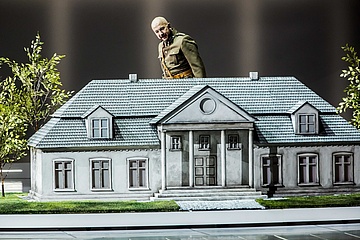
- See photo: fot. / photo: Krzysztof Bieliński
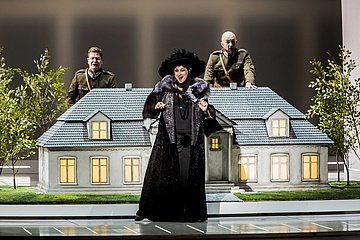
- See photo: fot. / photo: Krzysztof Bieliński
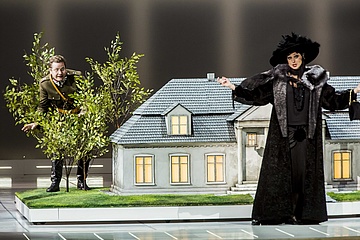
- See photo: fot. / photo: Krzysztof Bieliński
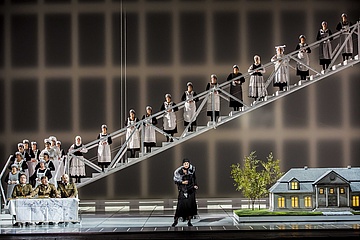
- See photo: fot. / photo: Krzysztof Bieliński
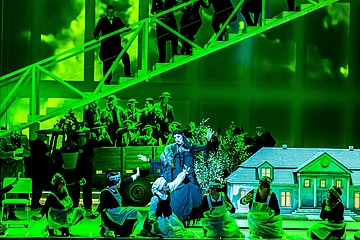
- See photo: fot. / photo: Krzysztof Bieliński
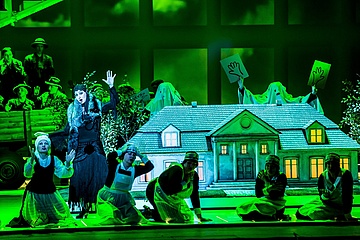
- See photo: fot. / photo: Krzysztof Bieliński
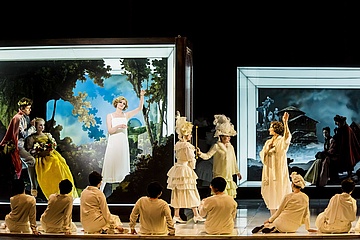
- See photo: fot. / photo: Krzysztof Bieliński
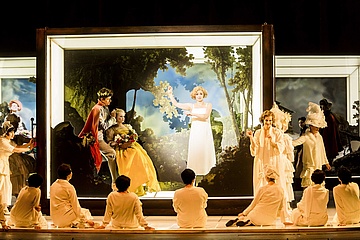
- See photo: fot. / photo: Krzysztof Bieliński
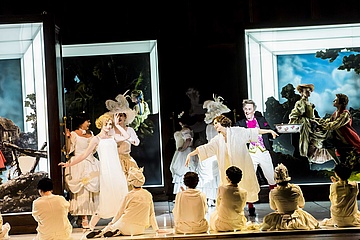
- See photo: fot. / photo: Krzysztof Bieliński
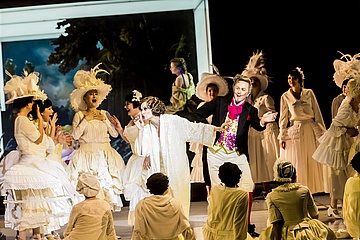
- See photo: fot. / photo: Krzysztof Bieliński
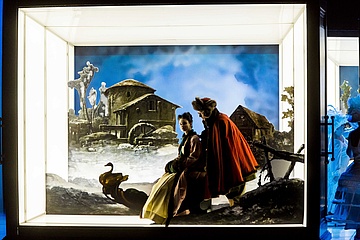
- See photo: fot. / photo: Krzysztof Bieliński
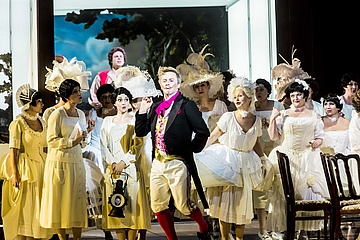
- See photo: fot. / photo: Krzysztof Bieliński
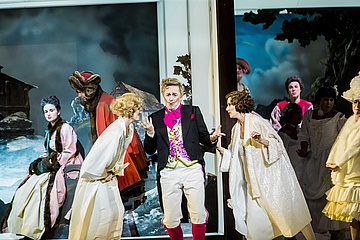
- See photo: fot. / photo: Krzysztof Bieliński
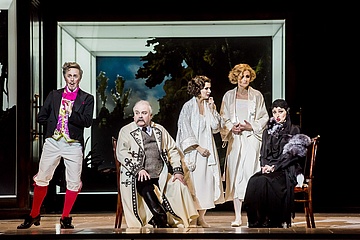
- See photo: fot. / photo: Krzysztof Bieliński
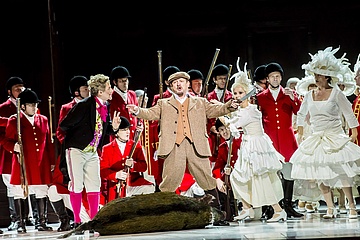
- See photo: fot. / photo: Krzysztof Bieliński
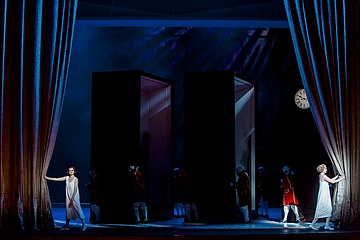
- See photo: fot. / photo: Krzysztof Bieliński
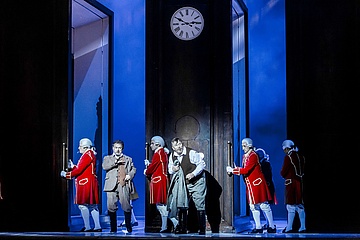
- See photo: fot. / photo: Krzysztof Bieliński
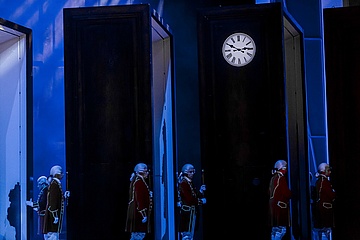
- See photo: fot. / photo: Krzysztof Bieliński
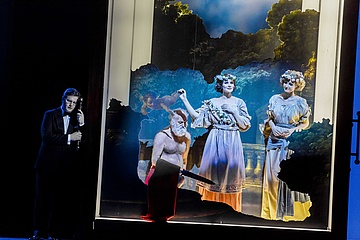
- See photo: fot. / photo: Krzysztof Bieliński
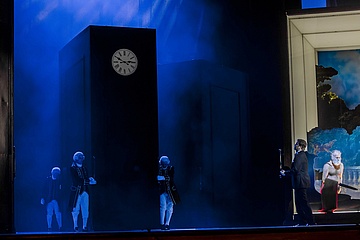
- See photo: fot. / photo: Krzysztof Bieliński
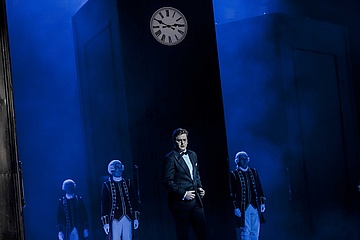
- See photo: fot. / photo: Krzysztof Bieliński
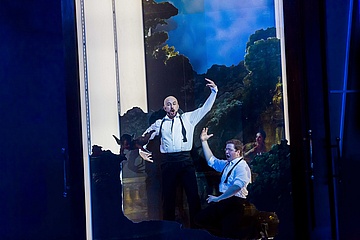
- See photo: fot. / photo: Krzysztof Bieliński
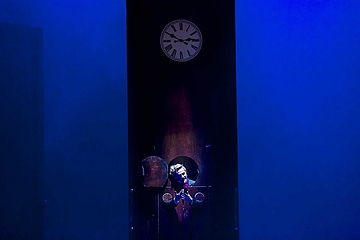
- See photo: fot. / photo: Krzysztof Bieliński
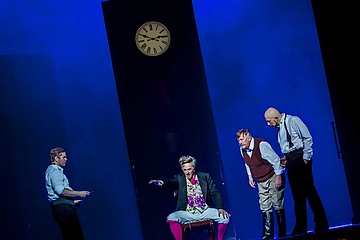
- See photo: fot. / photo: Krzysztof Bieliński
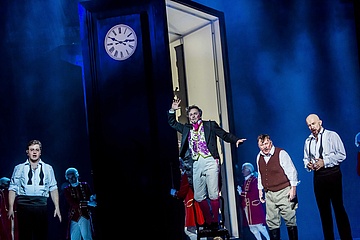
- See photo: fot. / photo: Krzysztof Bieliński
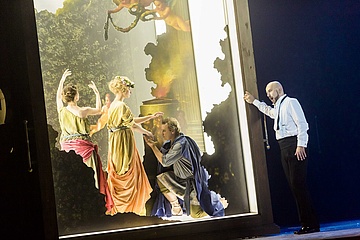
- See photo: fot. / photo: Krzysztof Bieliński
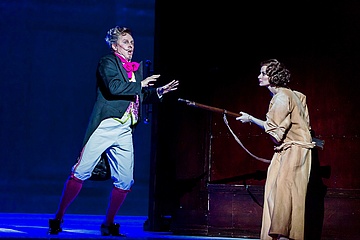
- See photo: fot. / photo: Krzysztof Bieliński
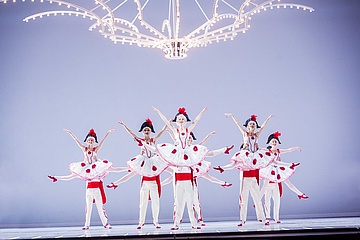
- See photo: fot. / photo: Krzysztof Bieliński
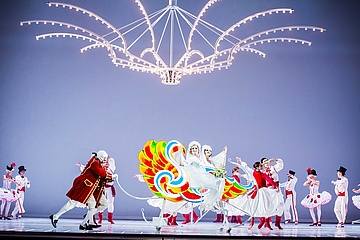
- See photo: fot. / photo: Krzysztof Bieliński
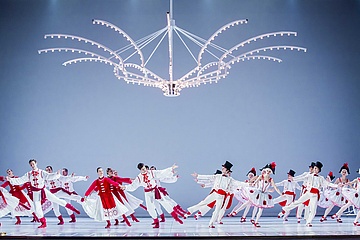
- See photo: fot. / photo: Krzysztof Bieliński
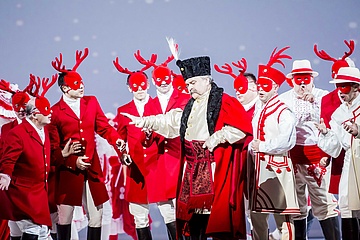
- See photo: fot. / photo: Krzysztof Bieliński
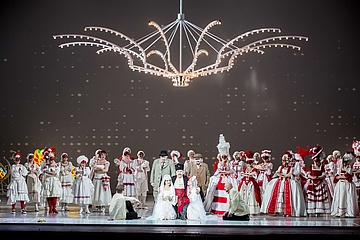
- See photo: fot. / photo: Krzysztof Bieliński
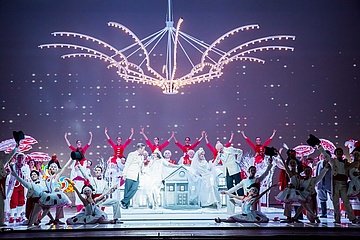
- See photo: Straszny Dwór plakat / poster Adam Żebrowski
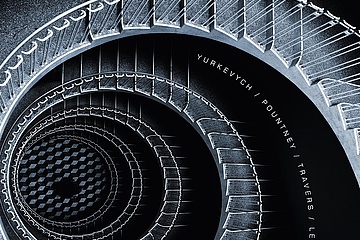
Opera in four acts
Libretto: Jan Chęciński
World premiere: 28 September 1865, Teatr Wielki, Warsaw
Premiere of this production: 8 November 2015
In the original Polish with English surtitles
Consolidated during the partitions and afterwards in reborn Poland, the collective notion of the proper theatrical form for Moniuszko’s The Haunted Manor, which being Poland’s national opera should realistically portray Polish gentry traditions, long remained in force. It was only the directing visions of Aleksander Bardini, Maciej Prus, Andrzej Żuławski and Mikołaj Grabowski that demolished that notion. They caused controversy. But the decision to have a Briton direct the work was simply revolutionary. Is David Pountney’s production controversial? It is! But it is also interesting, new and beautiful! It testifies to his knowledge of Polish history. The main characters parade around in uniforms from independent Poland (1920). The imagery includes not just talking portraits of great-great-grandmothers (as a bit of playful mischief), but also Kossak’s Miracle on the Vistula and genre scenes from 18th-century French miniatures (tableaus were present in Polish theatre tradition at least since the Young Poland movement). There’s plenty of comedy: the morning at the barracks after demobilization, the “little house” of dreams that is the size of a toy, or the squabble over the boar. And there’s the famous mazurka, in which costumes (white and red for everyone) and the character of the dance are used to portray the intolerable duality of Polish nature: a blend of dignified pride and inclination for tomfoolery. The mazurka is disrupted by the scream of an approaching airplane, the lights dim for a moment. It takes a while for the dancing and music to resume. No Polish director has shown, in a fraction of a minute, the tragic fate of the Teatr Wielki as fittingly as Pountney. The last performance before the theatre’s wartime destruction was in fact The Haunted Manor, on 31 May 1939. It was also the first after the reconstruction, on 20 November 1965, when “dancing and music” could return here again.
Cast
-
- Hanna
- Jadwiga
- Stefan
- Zbigniew
- Chamberlain's wife
- Sword-bearer
-
- Skołuba
- Damazy
- Martha
- Grześ
- Old Woman
- Maciej
-
- Hanna
- Jadwiga
- Stefan
- Zbigniew
- Chamberlain's wife
- Sword-bearer
-
- Skołuba
- Damazy
- Martha
- Grześ
- Old Woman
- Maciej
-
- Hanna
- Jadwiga
- Stefan
- Zbigniew
- Chamberlain's wife
- Sword-bearer
-
- Skołuba
- Damazy
- Martha
- Grześ
- Old Woman
- Maciej
-
- Hanna
- Jadwiga
- Stefan
- Zbigniew
- Chamberlain's wife
- Sword-bearer
-
- Skołuba
- Damazy
- Martha
- Grześ
- Old Woman
- Maciej
-
- Hanna
- Jadwiga
- Stefan
- Zbigniew
- Chamberlain's wife
- Sword-bearer
-
- Skołuba
- Damazy
- Martha
- Grześ
- Old Woman
- Maciej
-
- Hanna
- Jadwiga
- Stefan
- Zbigniew
- Chamberlain's wife
- Sword-bearer
-
- Skołuba
- Damazy
- Martha
- Grześ
- Old Woman
- Maciej
-
- Hanna
- Jadwiga
- Stefan
- Zbigniew
- Chamberlain's wife
- Sword-bearer
-
- Skołuba
- Damazy
- Martha
- Grześ
- Old Woman
- Maciej
Credits
-
- Director
- Set Designer
- Costumes
- Choreography
- Lighting Designer
- Conductor
-
- Director
- Set Designer
- Costumes
- Choreography
- Lighting Designer
- Conductor
-
- Director
- Set Designer
- Costumes
- Choreography
- Lighting Designer
- Conductor
-
- Director
- Set Designer
- Costumes
- Choreography
- Lighting Designer
- Conductor
-
- Director
- Set Designer
- Costumes
- Choreography
- Lighting Designer
- Conductor
-
- Director
- Set Designer
- Costumes
- Choreography
- Lighting Designer
- Conductor
-
- Director
- Set Designer
- Costumes
- Choreography
- Lighting Designer
- Conductor
Synopsis
-
Act I
Two brothers, Stefan and Zbigniew, bid farewell to their fellow soldiers. They make a solemn promise to remain single so as not to be diverted by domestic issues should their country need them in the future (chorus and duet).
Back at their country estate, the servants are preparing for the brothers' arrival home (chorus), together with their faithful companion Maciej. The three men reflect nostalgically on their childhood home (trio). Their Aunt, Chamberlain's wife, arrives – a notorious matchmaker. She has marriage plans for her nephews (trio) which the boys resist, planning instead to put the affairs of their estate in order by collecting their debts. She is horrified when they announce that they will begin at Kalinowo, a house which she claims is haunted. Undeterred, the three men set off (finale).
-
Act II
New Year's Eve in Kalinowo, the Manor House of the Sword-Bearer. A group of young girls including his daughters, Hanna and Jadwiga, are preparing entertainments for the traditional New Year party, and amuse themselves by telling one another's fortunes (women's chorus and dumka). Damazy, a lawyer with a taste for affected French fashion, makes a play for one of the sisters (duet), but the fortune-telling reveals that the girls are destined to marry soldiers (quartet). The Sword-Bearer expounds his idea of the perfect son-in-law, a Polish citizen and patriot characterised by courage and nobility (Polonaise aria).
The Chamberlain's wife has managed to get to Kalinowo before her nephews, and tries to dampen the family's interest in them by describing them as weak and effeminate. Hanna and Jadwiga determine to punish them for their unworthy cowardice.
The steward Skołuba arrives with huntsmen. He has just shot a wild boar, but at the same time it was hit by another bullet from a stranger in a passing coach: there are two bullets in the animal. Who can claim the prize? Zbigniew and Stefan are welcomed by the Sword-Bearer as the sons of his dearest friend. It was Maciej who fired the second shot, and he and Skoluba start a noisy dispute. The Sword-Bearer announces that at the New Year banquet the first toast will be to Stefan and Zbigniew's father (finale).
-
Act III
A room in the tower of Kalinowo Manor with a large grandfather clock and paintings on the walls. Maciej is terrified when Skołuba warns him about the apparitions that haunt the tower (aria). The two girls have secretly hidden behind the paintings. Maciej imagines everything to be a ghost, and Zbigniew and Stefan try to calm him down, commenting that the old soldier displays his courage only on the battlefield, and that the wine may be the cause of the ghosts he sees. In the moonlight Stefan is haunted by Hanna's beautiful eyes, but then remembers his vow. The clock strikes twelve, and the chimes play a melody which his father used to sing (Aria with chimes). Zbigniew is also unable to fall asleep and the brothers confess to one another that they have fallen in love: Stefan with Hanna, and Zbigniew with Jadwiga. The two girls secretly observe these confessions from their pictures (duet and quartet). Damazy has hidden inside the clock, hoping to frighten the visitors, but Maciej captures him and Damazy now has to explain himself. Still intent on driving the brothers away, he tells them that the manor house was built with a reward for treachery, and so is cursed. Disgusted by this information, they decide to leave at once (finale). -
Act IV
Hanna is furious about thier perceived cowardice, and asserts that there is no conflict between marriage and duty to the fatherland (aria). Damazy reports that the two men are afraid of ghosts and are about to depart. The Sword-Bearer flies into a rage, accusing the two men of cowardice, but although the boys keep up a tactful silence, Maciej reveals Damazy's scandalous accusation. The Sword-Bearer indignantly refutes this, and persuades the boys to stay.
The ringing of bells is heard in the distance, and sleighs with guests arrive, including Damazy in disguise. He is eventually exposed, and the Sword-Bearer demands an explanation for his lies. Damazy makes one last attempt to gain the hands of one of the sisters, but now the brothers realise they must follow their hearts, and their proposals are accepted, but not before the Sword-Bearer has finally explained the true reason for the manor's haunted reputation (finale).
Sponsors
-
Mecenas Teatru Wielkiego - Opery Narodowej
-
Partnerzy Teatru Wielkiego - Opery Narodowej
-
Patroni medialni Teatru Wielkiego - Opery Narodowej
-
Patron of Teatr Wielki - Polish National Opera
-
Partners of Teatr Wielki – Polish National Opera
-
Media patrons of Teatr Wielki – Polish National Opera






 Edyta Piasecka
Edyta Piasecka  Anna Jeruć
Anna Jeruć  Anna Bernacka
Anna Bernacka  Elżbieta Wróblewska
Elżbieta Wróblewska  Tadeusz Szlenkier
Tadeusz Szlenkier  Artur Janda
Artur Janda  Wojtek Gierlach
Wojtek Gierlach ![[Translate to English:]](/fileadmin/_processed_/0/2/csm_anna_borucka_2025_-_kwadrat_ef9111580e.jpg) Anna Borucka
Anna Borucka  Anna Lubańska
Anna Lubańska  Adam Kruszewski
Adam Kruszewski  Stanislav Kuflyuk
Stanislav Kuflyuk  Aleksander Teliga
Aleksander Teliga  Volodymyr Pankiv
Volodymyr Pankiv  Aleksander Kunach
Aleksander Kunach  Ryszard Minkiewicz
Ryszard Minkiewicz ![[Translate to English:]](/fileadmin/_processed_/8/5/csm_Joanna_Motulewicz_new_-_kwadrat_57c6bace38.jpg) Joanna Motulewicz
Joanna Motulewicz  Magdalena Idzik
Magdalena Idzik ![[Translate to English:]](/fileadmin/_processed_/5/b/csm_damian_wilma_2024_-_kwadrat_bf794b4cfc.jpg) Damian Wilma
Damian Wilma  Wanda Franek
Wanda Franek  Zenon Kowalski
Zenon Kowalski  Zbigniew Macias
Zbigniew Macias  Arnold Rutkowski
Arnold Rutkowski  Lukas Jakobski
Lukas Jakobski ![[Translate to English:]](/fileadmin/_processed_/d/f/csm_rte-WNO_Artistic_Director_David_Pountney._Photo_credit__Richard_H_Smith_kwadrat_65b5afbeda.jpg) David Pountney
David Pountney  Leslie Travers
Leslie Travers  Marie-Jeanne Lecca
Marie-Jeanne Lecca ![[Translate to English:]](/fileadmin/_processed_/f/4/csm_Emil_Wesolowski_fot._Pawel_Roslon_mini__e5d48cae55.jpg) Emil Wesołowski
Emil Wesołowski  Fabrice Kebour
Fabrice Kebour ![[Translate to English:]](/fileadmin/_processed_/0/3/csm_Ewa_Strusinska_foto-Bartek_Barczyk_370x370_CB_db4ad6e579.jpg) Ewa Strusińska
Ewa Strusińska ![[Translate to English:]](/fileadmin/_processed_/b/4/csm_Marta_Kluczynska_fot_karpati_zarewicz_kwadrat_fde347331b.jpg) Marta Kluczyńska
Marta Kluczyńska 

